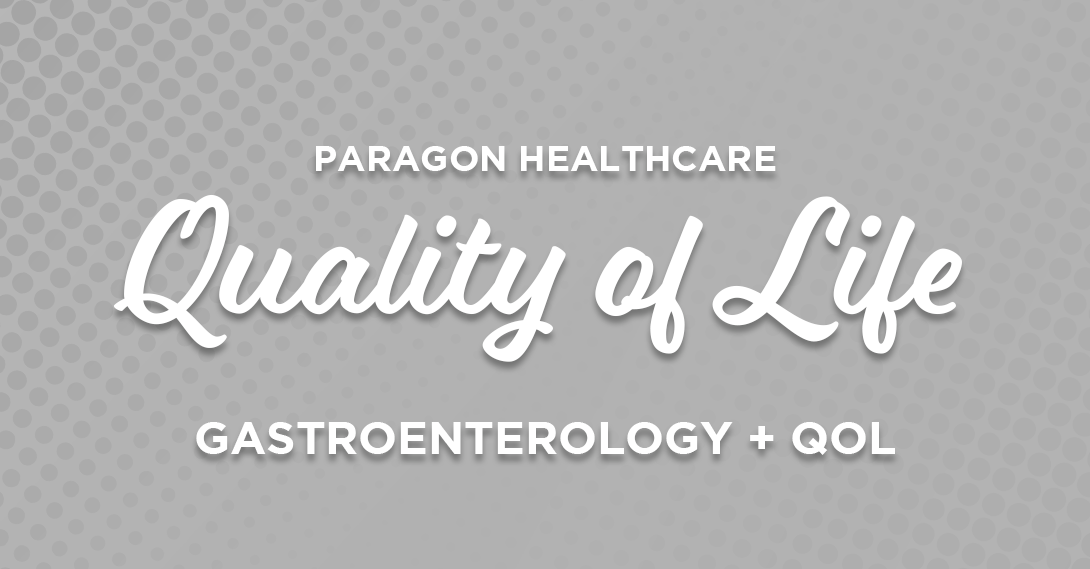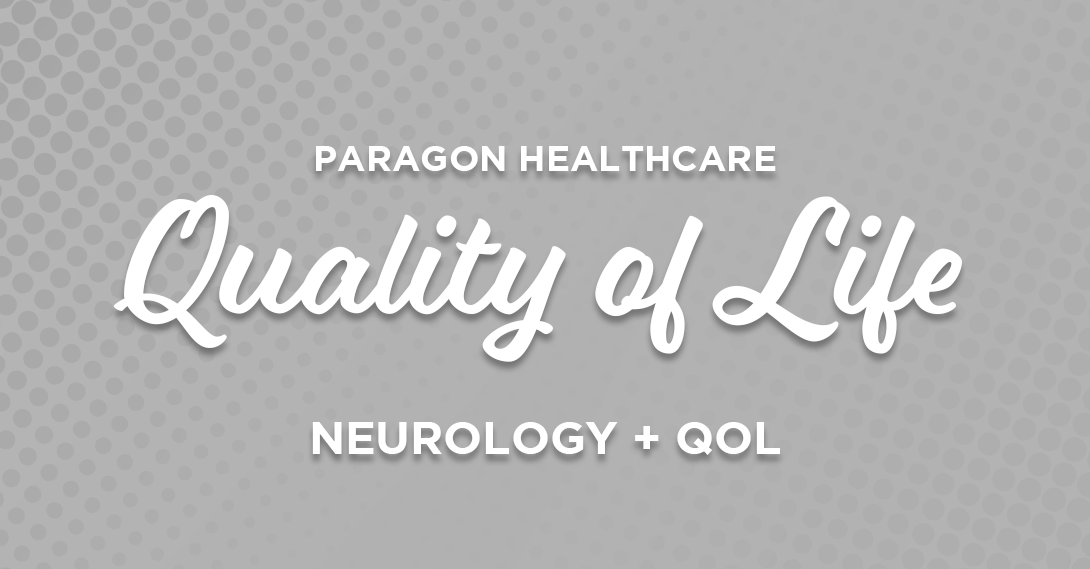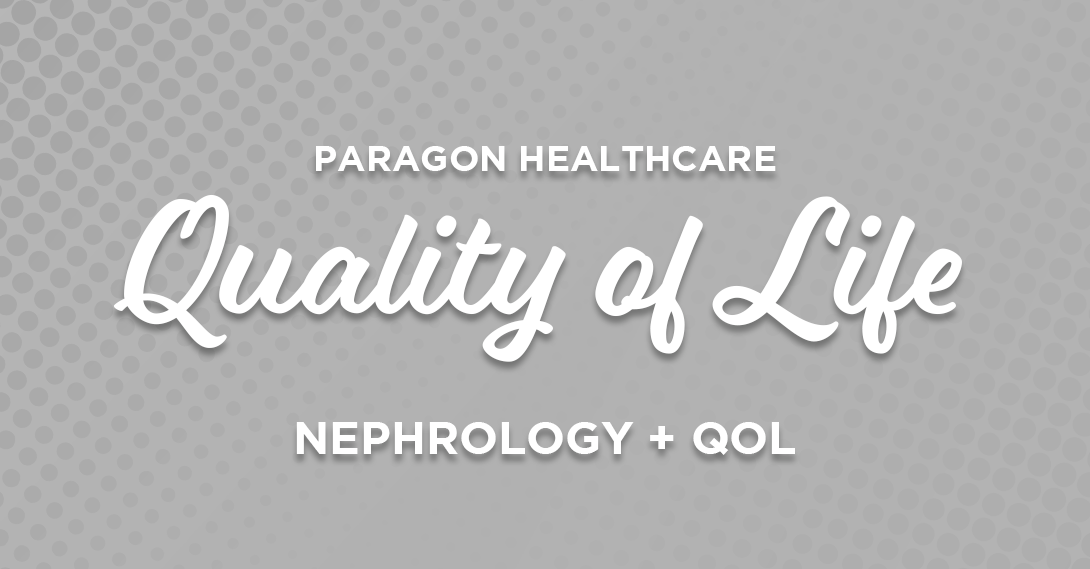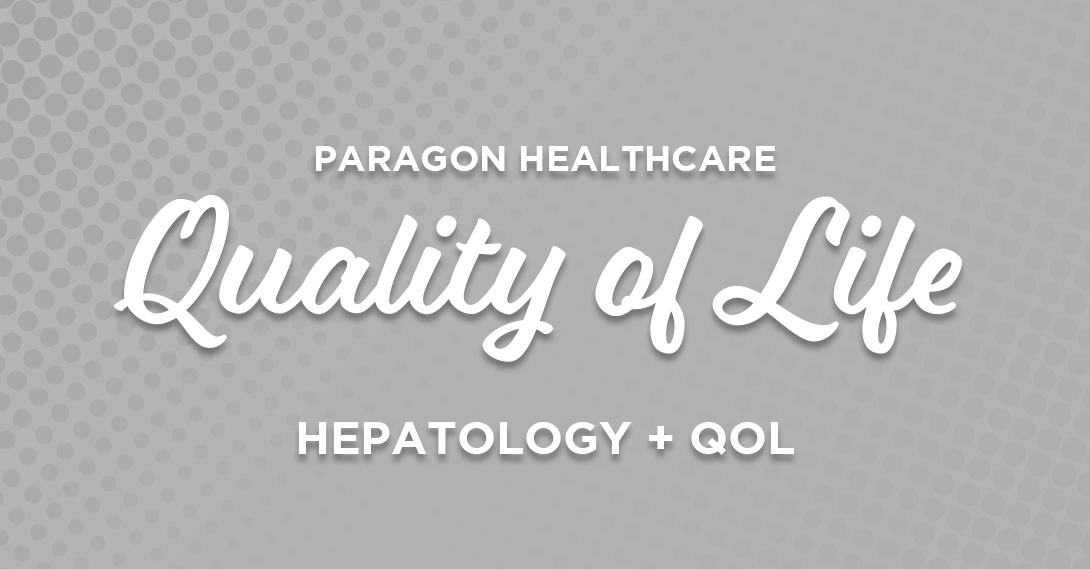Quality of life (QOL) is a phrase used a lot these days, but what does it actually mean, and how does it relate to neurology patients? Read our latest blog article to learn more.

Quality of life and gastroenterology are important topics to us. We partner with gastroenterologists nationwide to treat patients just like you. At Paragon, we know that each of our GI patients faces a unique set of obstacles related to their condition, symptoms, and therapy. Even though 60 to 70 million people are living with a digestive disease, you are not just a number to us. You are part of our family. We see the challenges you face and are here to provide clinical resources to best support you where you’re at on your journey. Our goal is to help you overcome hurdles related to your health, comfort, and happiness in order to improve your overall quality of life.
"Quality of Life" is defined as the standard of health, comfort, and happiness experienced by an individual or group. The CDC states, “Health is more than the absence of disease; it is a resource that allows people to realize their aspirations, satisfy their needs, and to cope with the environment to live a long, productive, and fruitful life.”
Quality of life asks questions like, “Do you perceive that your life is going well?” This question must consider your joy and grief, housing, employment, relationships, and overall sense of well-being. These factors are not easy to measure since well-being is a subjective concept, but these areas are critical to painting a picture of your quality of life.
No two patients are the same, and neither is their experience with a digestive condition. We know that a child’s experience is different from that of a teen or young adult, and a parent of a child has a vastly different set of challenges from an elderly patient with a similar condition. When you come on our service to treat your GI condition, our team considers multiple lifestyle factors when building your customized plan. We partner with your physician and you to ensure you have a care plan tailored to your specific needs.
Many patients with a digestive disease have reported the following:
There is hope. Our heart is to see you thrive in life and reach each goal you set for yourself, big or small. There are multiple online resources, community support groups, specialty therapies, and helpful information available. Whether you have been diagnosed with diverticulitis, Crohn’s disease, or ulcerative colitis, we’re here to provide the infusible and injectable therapies needed to manage your symptoms. Together with your physician, caregivers, and family, we believe you can live your life to its fullest.
As the healthcare industry shifts to focusing on gastroenterology patients’ experience, physicians and providers alike are recognizing that happy and healthy patients are the sum total of a positive physical, mental, and emotional state. Quality of life is a term used to encompass more than just a patient’s physical symptoms from their health condition. Our goal is to empower you to take charge of your health by learning practical ways to manage your condition.
For more information about Paragon Healthcare, visit https://paragonhealthcare.com/.
 Neurology and Quality of Life
Neurology and Quality of Life
Quality of life (QOL) is a phrase used a lot these days, but what does it actually mean, and how does it relate to neurology patients? Read our latest blog article to learn more.
 Nephrology and Quality of Life
Nephrology and Quality of Life
Quality of life (QOL) is a phrase used a lot these days, but what does it actually mean, and how does it relate to nephrology patients? Read our latest blog article to learn more.
 Hepatology and Quality of Life
Hepatology and Quality of Life
Quality of life (QOL) is a phrase used a lot these days, but what does it actually mean, and how does it relate to hepatology patients? Read our latest blog article to learn more.